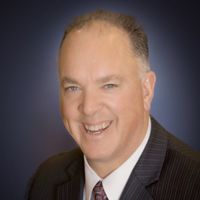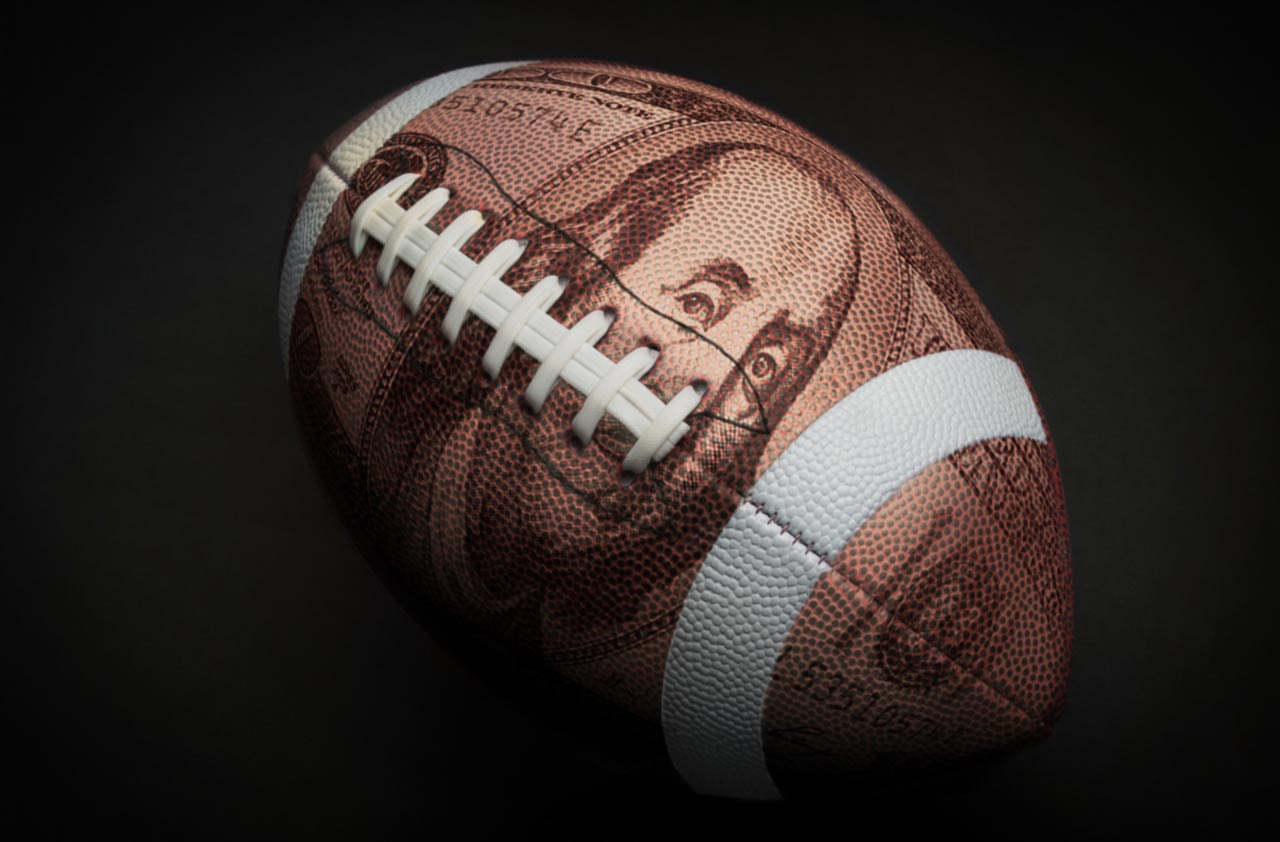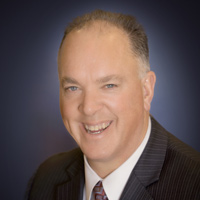NFL Superstars' Financial Fumbles Hold Lessons for Rest of Us
Just because you're rich doesn't mean you don't make money mistakes. In fact, it may mean you make bigger ones.


Profit and prosper with the best of Kiplinger's advice on investing, taxes, retirement, personal finance and much more. Delivered daily. Enter your email in the box and click Sign Me Up.
You are now subscribed
Your newsletter sign-up was successful
Want to add more newsletters?

Delivered daily
Kiplinger Today
Profit and prosper with the best of Kiplinger's advice on investing, taxes, retirement, personal finance and much more delivered daily. Smart money moves start here.

Sent five days a week
Kiplinger A Step Ahead
Get practical help to make better financial decisions in your everyday life, from spending to savings on top deals.

Delivered daily
Kiplinger Closing Bell
Get today's biggest financial and investing headlines delivered to your inbox every day the U.S. stock market is open.

Sent twice a week
Kiplinger Adviser Intel
Financial pros across the country share best practices and fresh tactics to preserve and grow your wealth.

Delivered weekly
Kiplinger Tax Tips
Trim your federal and state tax bills with practical tax-planning and tax-cutting strategies.

Sent twice a week
Kiplinger Retirement Tips
Your twice-a-week guide to planning and enjoying a financially secure and richly rewarding retirement

Sent bimonthly.
Kiplinger Adviser Angle
Insights for advisers, wealth managers and other financial professionals.

Sent twice a week
Kiplinger Investing Weekly
Your twice-a-week roundup of promising stocks, funds, companies and industries you should consider, ones you should avoid, and why.

Sent weekly for six weeks
Kiplinger Invest for Retirement
Your step-by-step six-part series on how to invest for retirement, from devising a successful strategy to exactly which investments to choose.
It isn’t much of a surprise anymore when you hear that a former NFL star is suffering from serious financial woes.
It used to be you’d wonder how someone who made millions of dollars every year could lose it all so fast. Now we know: They spend too much. They have expensive divorces. They get bad advice and make terrible deals.
And for many, their careers are short — just three to six years.
From just $107.88 $24.99 for Kiplinger Personal Finance
Become a smarter, better informed investor. Subscribe from just $107.88 $24.99, plus get up to 4 Special Issues

Sign up for Kiplinger’s Free Newsletters
Profit and prosper with the best of expert advice on investing, taxes, retirement, personal finance and more - straight to your e-mail.
Profit and prosper with the best of expert advice - straight to your e-mail.
Some epic fails by NFL stars
But even seasoned superstars can run into trouble. In 2010, John Elway, the Denver Broncos’ Super Bowl-winning quarterback and current general manager, was among dozens of investors who got caught up in a Ponzi scheme and lost millions. When Cleveland Browns quarterback Bernie Kosar filed for bankruptcy in 2009, he owed $9.7 million to the bank for failed real estate deals, $3 million to his ex-wife, and thousands more in personal loans. Even the late, great quarterback Johnny Unitas, beloved in Baltimore, filed for bankruptcy in 1991. And just last fall, 60 Minutes reported that several players — including Ray Lewis and Terrell Owens — had lost millions after investing in a failed electronic-bingo-casino-and-entertainment complex in Alabama.
In other words, these guys make mistakes just like the average Joes who fill up stadiums to watch them. They just do it on a much grander scale.
Where they go wrong
Just like doctors, dentists and construction workers, athletes hang with their own, and they tend to invest in the same ways. They tend to like businesses that bear their names, raise their profiles and feed their egos — and when they do make an investment, they tend to go big, putting all their money into car dealerships, restaurants and sports franchises. Some of those work out … but a lot of them don’t.
Pro football players are good at what they do, but clearly many aren’t getting the right advice when it comes to planning for the future. If an NFL star walked into my office today and asked me for help, I’d sit him down and start asking questions.
- Have you worked out a plan for protecting your assets as well as growing them?
- Have you put together a trust?
- Have you thought about your future medical expenses and all those injuries that may have taken a toll on your body and your brain?
- Do you look at the real returns of investments versus what a friend or the stock market ticker is telling you?
And while we were chatting, I’d put the focus on these three points:
- Inflation: This is a particularly important factor for someone who has become accustomed to and hopes to maintain an upscale lifestyle. To keep up, he’ll have to double his income every 10 to 15 years, which won’t be easy once those big paychecks stop. But there are things we can put in place to make it happen.
- Taxes: It’s imperative to take taxes into consideration when planning for the long term, especially when so much money is involved. I’d suggest creating a family foundation, with money the player can tap into while he’s alive but that also goes on into perpetuity to support philanthropic causes he believes in. He can involve his family members, giving his kids a chance to learn about giving. And he can give the foundation his name!
- Guaranteed income: Restaurants fold, stocks drop and endorsement deals can dry up, but there are ways to be sure his money lasts as long as he does, including different kinds of annuities.
These are tough topics for young men who’ve dreamed of laying down cash for a new car or helping friends and family get past their money problems. They certainly aren’t designed to inflate an already healthy ego. But if these guys want to come out of their careers with more than memories, they’d be wise to find an adviser who will help them tackle a plan that’s less about risk and more about long-term rewards.
Lessons for the rest of us
Fans can learn some lessons from their favorite superstars’ high-profile fumbles. After all, they’re not the only ones who have to overcome setbacks. And we’ll all have to deal with similar issues in retirement.
Find a coach you can trust: Your adviser can help you put together a game plan that addresses inflation, taxes and income needs on your level of play.
Kim Franke-Folstad contributed to this article.
Any comments regarding safe and secure investments and guaranteed income streams refer only to fixed insurance products. They do not refer, in any way to securities or investment advisory products. Fixed insurance and annuity product guarantees are subject to the claims-paying ability of the issuing company and are not offered by Global Financial Private Capital.
This material is for informational purposes only. It is not intended to provide tax, accounting or legal advice or to serve as the basis for any financial decisions. Individuals are advised to consult with their own accountant and/or attorney regarding all tax, accounting and legal matters.
Profit and prosper with the best of Kiplinger's advice on investing, taxes, retirement, personal finance and much more. Delivered daily. Enter your email in the box and click Sign Me Up.

Don Bergis is an Investment Adviser Representative (IAR) and the founder of Authentikos Advisory, a full-service fiduciary firm focused on the protection and growth of client assets toward and through retirement.
-
 Nasdaq Leads a Rocky Risk-On Rally: Stock Market Today
Nasdaq Leads a Rocky Risk-On Rally: Stock Market TodayAnother worrying bout of late-session weakness couldn't take down the main equity indexes on Wednesday.
-
 Quiz: Do You Know How to Avoid the "Medigap Trap?"
Quiz: Do You Know How to Avoid the "Medigap Trap?"Quiz Test your basic knowledge of the "Medigap Trap" in our quick quiz.
-
 5 Top Tax-Efficient Mutual Funds for Smarter Investing
5 Top Tax-Efficient Mutual Funds for Smarter InvestingMutual funds are many things, but "tax-friendly" usually isn't one of them. These are the exceptions.
-
 Social Security Break-Even Math Is Helpful, But Don't Let It Dictate When You'll File
Social Security Break-Even Math Is Helpful, But Don't Let It Dictate When You'll FileYour Social Security break-even age tells you how long you'd need to live for delaying to pay off, but shouldn't be the sole basis for deciding when to claim.
-
 I'm an Opportunity Zone Pro: This Is How to Deliver Roth-Like Tax-Free Growth (Without Contribution Limits)
I'm an Opportunity Zone Pro: This Is How to Deliver Roth-Like Tax-Free Growth (Without Contribution Limits)Investors who combine Roth IRAs, the gold standard of tax-free savings, with qualified opportunity funds could enjoy decades of tax-free growth.
-
 One of the Most Powerful Wealth-Building Moves a Woman Can Make: A Midcareer Pivot
One of the Most Powerful Wealth-Building Moves a Woman Can Make: A Midcareer PivotIf it feels like you can't sustain what you're doing for the next 20 years, it's time for an honest look at what's draining you and what energizes you.
-
 I'm a Wealth Adviser Obsessed With Mahjong: Here Are 8 Ways It Can Teach Us How to Manage Our Money
I'm a Wealth Adviser Obsessed With Mahjong: Here Are 8 Ways It Can Teach Us How to Manage Our MoneyThis increasingly popular Chinese game can teach us not only how to help manage our money but also how important it is to connect with other people.
-
 Looking for a Financial Book That Won't Put Your Young Adult to Sleep? This One Makes 'Cents'
Looking for a Financial Book That Won't Put Your Young Adult to Sleep? This One Makes 'Cents'"Wealth Your Way" by Cosmo DeStefano offers a highly accessible guide for young adults and their parents on building wealth through simple, consistent habits.
-
 Global Uncertainty Has Investors Running Scared: This Is How Advisers Can Reassure Them
Global Uncertainty Has Investors Running Scared: This Is How Advisers Can Reassure ThemHow can advisers reassure clients nervous about their plans in an increasingly complex and rapidly changing world? This conversational framework provides the key.
-
 I'm a Real Estate Investing Pro: This Is How to Use 1031 Exchanges to Scale Up Your Real Estate Empire
I'm a Real Estate Investing Pro: This Is How to Use 1031 Exchanges to Scale Up Your Real Estate EmpireSmall rental properties can be excellent investments, but you can use 1031 exchanges to transition to commercial real estate for bigger wealth-building.
-
 Should You Jump on the Roth Conversion Bandwagon? A Financial Adviser Weighs In
Should You Jump on the Roth Conversion Bandwagon? A Financial Adviser Weighs InRoth conversions are all the rage, but what works well for one household can cause financial strain for another. This is what you should consider before moving ahead.